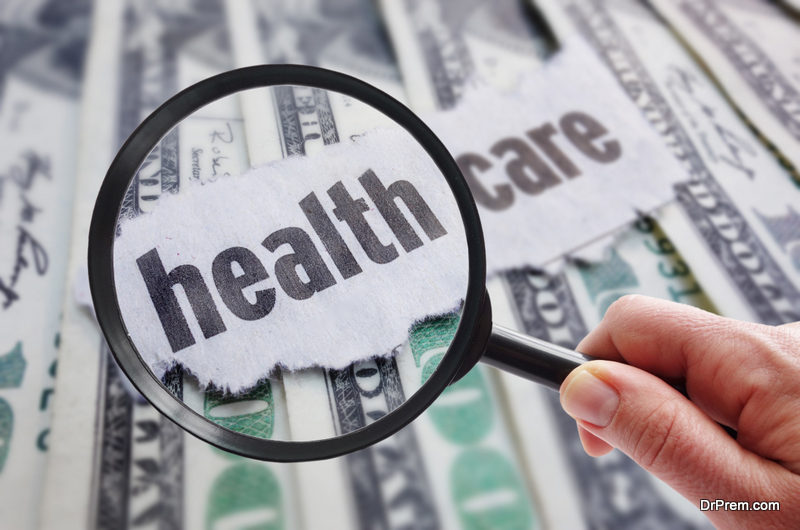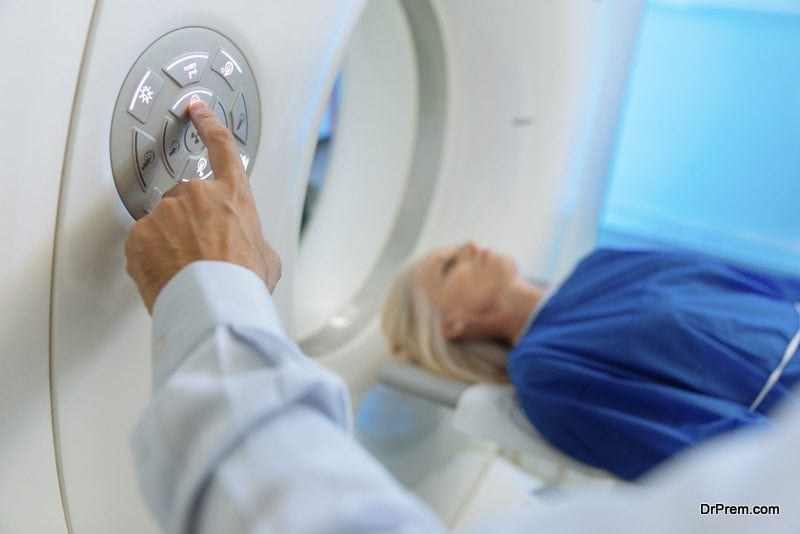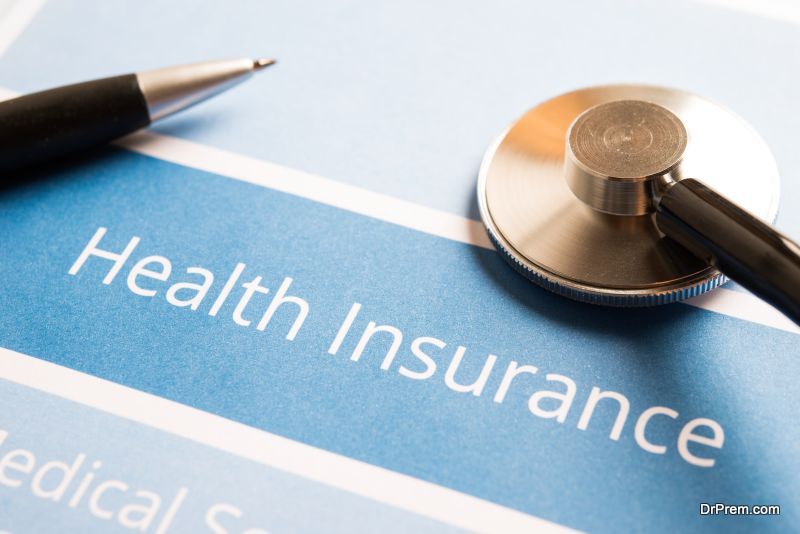Health insurance is a big issue in the United States. There’s great debate over whether or not medical benefits should be offered to all citizens or if privately funded benefits are the way to go. But this article isn’t designed to debate healthcare. Instead, we’ll cover the importance of having medical coverage, even if it’s minimal.
All too often young adults age out of their parents plans and decide they don’t need medical benefits. This is a very dangerous and risky decision which can negatively impacts their health in several ways. But young adults aren’t the only ones to blame for living life without the security of health insurance.
Being unemployed or running into tough financial times forces many Americans to let their coverage lapse and never seek an alternative plan. Once again, this can have disastrous effects if and when you suffer a medical emergency.
Understanding your healthcare plan and rights is an important first step in choosing the type of coverage you need. You can find an explanation of healthcare reform at this website, but be sure to check federal laws in your state.
Now that the messy paperwork end of things is out of the way, let’s take a closer look at why health insurance is an investment in your physical and mental wellbeing.
1. Without It, You May Not Receive the Care You Deserve
 This is a sad but true fact about the healthcare industry. If you enter a hospital, urgent care facility, or doctor’s office without insurance, you may not receive the level of care you need and deserve. Not to mention, some offices can decline services if you don’t have medical coverage. Not only does this mean a huge bill for you, but a serious medical condition may go untreated. If you’re turned away from one facility, chances are, you may not visit another one. Most people hate going to the doctor and put it off until the last minute. This gives whatever injury or illness you have time to spread and become much more serious. Even things as simple as a cold or congestion could be signs of a serious, life-threatening condition.
This is a sad but true fact about the healthcare industry. If you enter a hospital, urgent care facility, or doctor’s office without insurance, you may not receive the level of care you need and deserve. Not to mention, some offices can decline services if you don’t have medical coverage. Not only does this mean a huge bill for you, but a serious medical condition may go untreated. If you’re turned away from one facility, chances are, you may not visit another one. Most people hate going to the doctor and put it off until the last minute. This gives whatever injury or illness you have time to spread and become much more serious. Even things as simple as a cold or congestion could be signs of a serious, life-threatening condition.
If you do find a facility willing to treat you without insurance, it may change the way the staff treats you. This is a sad reality but in many cases, hospitals and doctor’s offices who treat patients without insurance are rarely reimbursed fully for the services they provide. After all, if you don’t have money to pay for insurance, how are you going to pay out of pocket for medical care? The staff may take the attitude of offering minimal or inadequate care to non-paying patients.
Neither a hospital or doctor’s office is permitted to deny services to someone without health insurance if their condition is considered a life-threatening emergency. Unfortunately, this doesn’t help those people who are sick or injured in a non-life-threatening manner and need help. You may receive subpar service, or worse, be turned away entirely.
2. Serious Health Issues Go Undetected
Did you know that something as simple as a common cold can quickly development into pneumonia and may result in death? Other underlying health conditions that often go undetected include diabetes, heart disease, some cancers, blood clots, sleep apnea, and a long list of mental disorders including bipolar and chronic depression. Without proper diagnosis and treatment, these conditions can easily turn into serious and life threatening problems.
If you don’t have health insurance, chances are you don’t have a primary care physician. This also means you neglect annual physicals, blood work, and mental health screenings which are designed to detect early signs of more serious conditions. Suicide is a real epidemic in the United States and 60% of those deaths are linked to some form of depression. The scariest thing about depression is that it often starts with mild symptoms but quickly progresses. It can also affect even the healthiest of individuals. Without a network of support, many depression sufferers are left to fall deeper into their disease. Lack of medical insurance means no access to mental health professionals, evaluations, or medications that might save your life.
There are also routine exams and check ups that people of a certain age or genetic makeup should go for. If you have a family history of cancers (including ovarian, breast, colon, and prostate) it’s recommended that you go for screenings and checks before the age of 40. You may be predisposed for these conditions. When it comes to cancer, early detection is key. The sooner you diagnose the issue, the faster you can start treatment and the more likely you are to survive.
3. You’re Less Likely to Visit a Doctor or Hospital
 Let’s face it, if you don’t have medical insurance, chances are you’ll avoid seeing the doctor at all costs. This is a very dangerous game to play, especially when it comes to your health. Fear of being refused care or being strapped with a hefty bill keeps most non-insured people far from the doctor’s office or hospital. If you’ve experienced a serious injury or are suffering from an illness that is progressively getting worse and avoid seeking medical attention, you’re compromising your health long-term.
Let’s face it, if you don’t have medical insurance, chances are you’ll avoid seeing the doctor at all costs. This is a very dangerous game to play, especially when it comes to your health. Fear of being refused care or being strapped with a hefty bill keeps most non-insured people far from the doctor’s office or hospital. If you’ve experienced a serious injury or are suffering from an illness that is progressively getting worse and avoid seeking medical attention, you’re compromising your health long-term.
Take athletes for example who suffer multiple concussions. Even with medical treatment, these types of injuries can lead to permanent brain damage and even death down the road. Seeing a medical professional when you have a condition that over the counter medications or basic treatment isn’t helping, can be a matter of life or death. Don’t let fear or lack of coverage stop you from getting the help you need.
4. Limited Access to Medication
These two things almost go hand-in-hand. Without adequate health insurance, you won’t have access to the best prescription medications available. Most health insurance policies offer a prescription plan. While the entire cost of medications may not be covered, a good portion normally is. Without this coverage, medication can cost hundreds of dollars. And that might be for something as simple as an antibiotic or inhaler. You can only self-medicate for so long when it comes to serious health concerns.
Over the counter pain medications work for mild headaches, aches and pains. A decongestant might help to break up head and chest congestion for a short period of time. But if your condition persists or worsens, it means you probably have an infection that needs prescription medicine to fix. The same holds true for mental disorders. Most mental health issues require outside intervention, whether it comes in the form of counseling, hypnotherapy, or anti-depressant medication. Gone untreated, depression can have extreme effects on a person’s overall health and wellbeing.
5. Dangers of Self-Diagnosing

Self-diagnosing (and then treating) your medical conditions is one of the worst, and most dangerous, things you can do. When people don’t have health insurance or a reliable doctor, they often turn to other means for answers to their medical questions. This might mean researching symptoms online or asking friends and family for advice.
Unless your uncle or sister are doctors, they shouldn’t be providing medical advice. Not to mention, everyone’s situation and body is different. Just because someone you know treated their injury or illness a certain way, doesn’t mean your body will react the same.
Another danger of self-diagnosis is believing that your symptoms are related to one condition, when really, they could be a sign of something completely different. So many symptoms are associated with very different medical conditions. For example, headaches may be something as simple as the need for glasses or something as serious as a brain tumor or blood clot. Self-diagnosis often leads to a wrong diagnosis, which results in lack of treatment or the wrong treatment. Leave the diagnosing up to the professionals.
6. It Will Cost You More Money in the Long Run
One of the main reasons people skip on health insurance is the cost. And that’s understandable since the cost of medical insurance can be crippling. Many people seek employment with a company that offers benefits. While employees pay into their own plans, it’s often much cheaper than obtaining medical coverage on your own.
Health insurance for the average family of 4 is nearly $30,000 per year. That’s equivalent to one adult household member’s annual salary! What’s even more shocking is the cost of medical treatments and doctor’s visits if you don’t have coverage. While physicals come in at the lower end of things, costing between $50-100 out of pocket, more complicated procedures like x-rays, ultrasounds, or screenings can cost thousands of dollars.
Taking risks with certain things in life can be rewarding. But one thing you should never risk is your health. Not investing in some form of health insurance is a recipe for disaster. It puts you at risk for serious injury and illness and the inability to seek proper treatment. Don’t play games with your health. Even the healthiest individuals encounter unexpected accidents, injuries, and illnesses. Take your health seriously and try viewing medical coverage as an investment in your future.
Article Submitted By Community Writer




